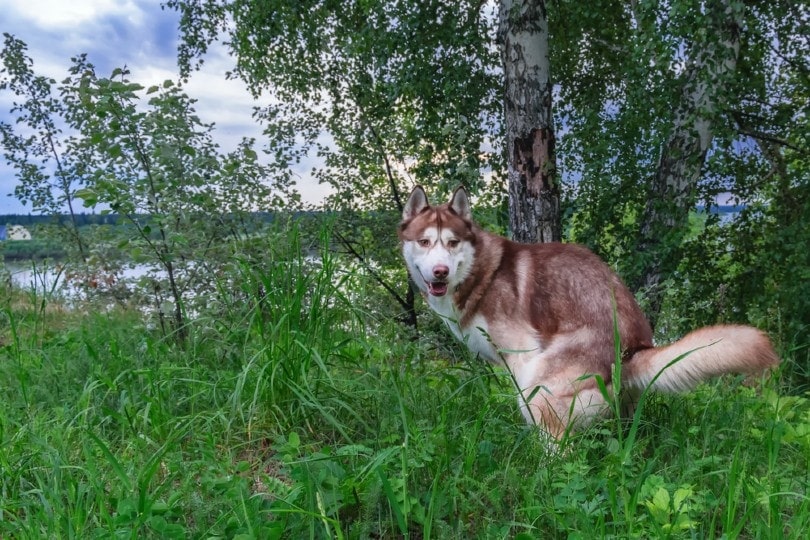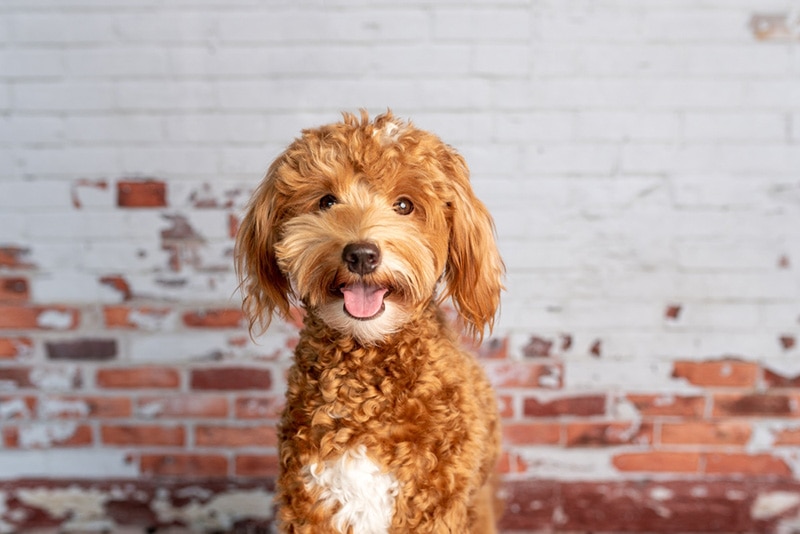Why Does My Dog’s Breath Smell So Bad? 10 Common Reasons
Updated on
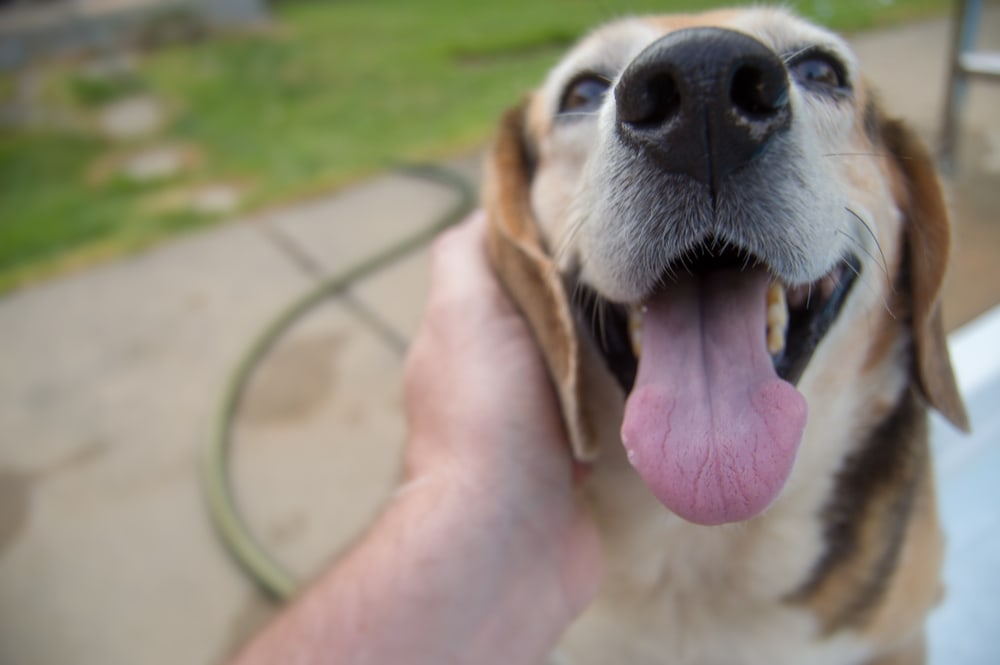
When you arrive back home from a long absence or you have guests around for dinner, it’s all fun and games when your dog wants to smother you or your guests in kisses. That is until you are hit with a waft of bad-smelling air. Bad dog breath can be mild to offensive. Some pet parents, especially when other people come to their home and greet their dog, become embarrassed and quite distressed over this, feeling the need to apologize for it or send the dog back to their bed, for example. So, what’s the culprit?
Bad breath occurs for a specific reason, and it could be an indicator of an underlying health condition. There are numerous health issues that can cause bad breath, and some might surprise you. Regardless, let’s look into 10 reasons why your dog’s breath smells and what you can do about it.
The 10 Reasons Why Your Dog’s Breath Smells
Read through the following 10 reasons why your dog has smelly breath and see if any resonate with you. The technical name for bad breath is halitosis, and the below issues and conditions that can cause this problem. In any case, your dog needs to be seen by a veterinarian to diagnose the correct cause and begin a treatment plan. Often but not always, when the cause is found and brought under control, the breath begins to smell lighter and better.
1. Dental Disease
The most common reason for bad breath is dental or periodontal disease. Dental and mouth issues are seen in a staggering amount of dogs; over 80% of dogs over the age of 3 have some form of this preventable condition, which also echoes a recent study discovering that one in eight dogs suffer from dental problems1. Breeds such as the Toy Poodle and Greyhound are more prone to these issues, as are smaller breeds.
Dental disease commonly occurs as a response to a lack of oral care and hygiene. Think how your teeth and mouth might be if you never brushed your teeth. Like us, dogs get plaque build up on their teeth after eating. Plaque is a sticky substance formed of bacteria, saliva and food particles. If it is not removed (by brushing for example) it hardens and mineralizes leading to chunky, discolored deposits on the tooth’s surface known as tartar or calculus. This results in gingivitis (inflamed gums), and bad breath.
The way to combat this problem is to ensure a regular dental care regimen from the get-go or as soon as possible. There are many methods and products you can use, but always use products formulated for dogs. Don’t be put off by “having to brush the teeth” as the only option, especially if you fear your dog might bite. Chat with your vet or vet tech/nurse. They are the perfect people to help you devise a realistic plan you can follow.
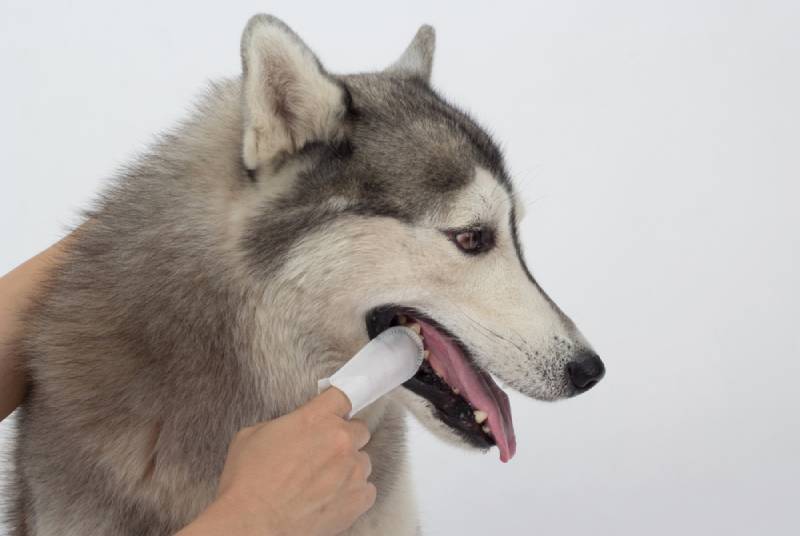
2. Kidney Disease
The kidneys remove waste products from the bloodstream by filtering out what isn’t needed and excreting these via the urinary system.
Bad breath due to kidney disease can have a distinct smell. If the kidneys are troubled, diseased, or failing, a dog’s breath can smell like ammonia or urine, known as uraemic breath. This is due to a build up of a substance called urea, which is a waste product the kidneys would normally excrete. If the kidneys are compromised, they can’t do that and, therefore, urea stays in the blood system. Uremia can also cause painful ulcers in the mouth. If you smell this type of breath, visit your vet immediately.
3. Diabetes
Just as kidney disease causes a distinct smell to your dog’s breath, so can diabetes, particularly if it is left untreated or is poorly controlled. The dog’s breath takes on a sweet or fruity smell, or it can smell similar to nail polish remover (acetone). This is due to diabetic ketoacidosis, a potentially life threatening complication of diabetes. Ketones are produced which is what you may be able to smell on your dog’s breath. If you smell this type of breath visit your vet immediately. Other signs of diabetes include increased drinking and urinating, changes in appetite and weight loss.
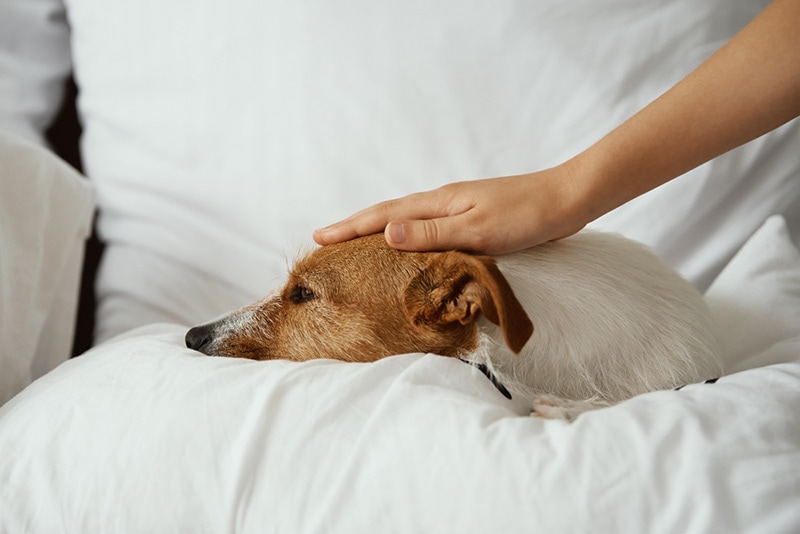
4. Liver Disease
The liver is another filtering organ that keeps all the good stuff the body needs while removing toxins and waste. If, like with the kidneys, the liver is compromised, infected, inflamed, or failing, it cannot function properly. Toxins and waste products then remain in the system and may cause bad breath. If you notice bad breath along with other signs such as yellowing of the skin, eyes, and gums, as well as weight loss, vomiting, and decreased eating, see your vet immediately.
5. Respiratory Tract Infections
Infections and inflammation forming anywhere within the respiratory system or airways can cause bad breath. This includes the windpipe (trachea), sinuses, throat and nasal areas, and lungs. Respiratory tract infections will usually be accompanied by other signs, such as coughing, a nasal discharge or breathing difficulties. Your vet will need to investigate and diagnose this and then begin treating it.
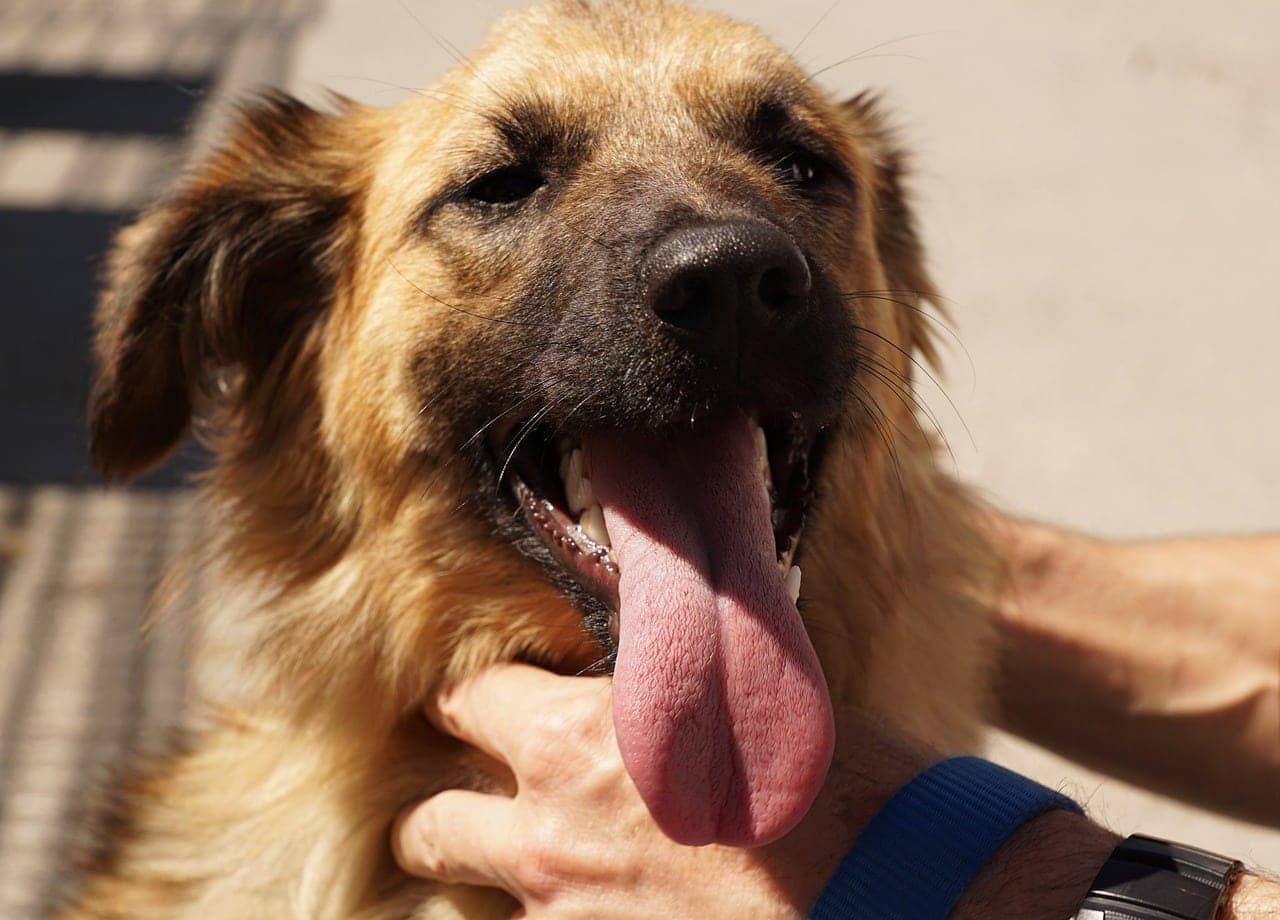
6. Gastrointestinal Issues
As with humans, there is a vast range of illnesses and problems affecting the digestive system, but bad breath can result as a secondary issue because of gut problems, such as vomiting, a blockage, or an infection.
7. Foreign Body
Dogs love to chew. This pastime is a fine activity if the item they are chewing or eating is safe. Sometimes, though, it isn’t, and even the most astute of owners can miss when their dog is chewing on something they shouldn’t.
There are many types of objects that can become stuck in their mouths. Examples include splinters, parts of sticks, bones, and bits of cloth or toys. These can become wedged between teeth, splinter and stick any of the soft tissues of the mouth (cheeks, roof of the mouth, etc.), or become stuck under the tongue. As the object sits there, it almost begins to fester and can cause a bad smell and problems with eating and overall wellness. A visit to your vet is required.
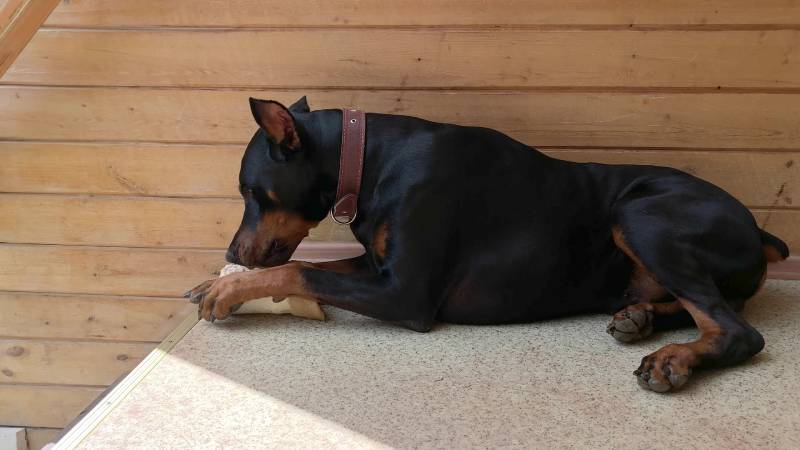
8. Lumps and Tumors
These occur more commonly in older dogs. They can be of varying sizes and places within the mouth and need investigation as soon as you spot a lump, bump, or any type of growth. Some of the lumps and masses are benign (non-cancerous) but some, unfortunately, are not. All can cause a bad smell, however, especially if left untreated or unmanaged.
9. Diet
As simple as it may sound, your dog’s food can be the culprit of their stinky breath. If they have a diet based on strong-smelling foods, such as fish, for example, the effects can be stinky. Raw food may be an issue for harboring bacteria as well. Likewise, the same applies to eating items they may have found in the garbage can or in the park.
One other factor to bear in mind while on the topic of diet is nutrient deficiencies. If this is a concern to you, chat to your veterinarian who can help check for and correct any deficiencies. Also, be sure to feed a high quality complete canine diet.
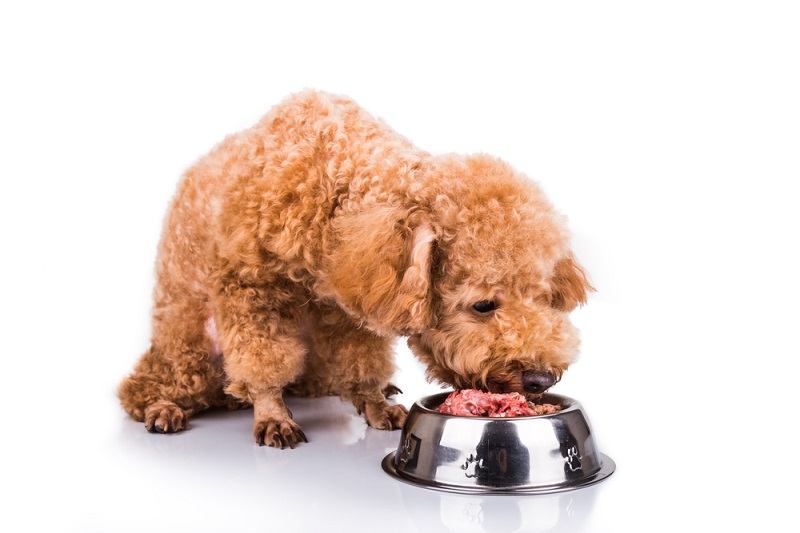
10. Mouth Conditions
Stomatitis is a condition known as inflammation of the mouth, seen as red, painful, or uncomfortable inflamed areas anywhere in the inside of the mouth. It can be very painful and often causes a reduced appetite along with halitosis. The exact cause is often unknown, it can be an immune system response to calculus and plaque on the teeth. Your vet will need to examine your dog and initiate any medication or treatment required.
Conclusion
Bad breath is something you will likely encounter at least once during your dog’s life. There are numerous reasons for this to occur, with some more serious than others, and your veterinarian will ascertain this. Either way, don’t ignore the dodgy breath and leave it to fix itself. Find the cause, begin proper treatment, and implement required lifestyle alterations, and hopefully, fresher smells will abound!
Featured Image Credit: Neal Bryant, Shutterstock



